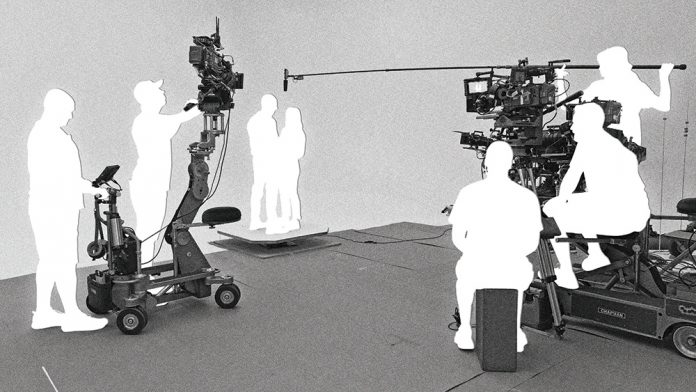This article is written by Shreya Kasale, pursuing the 6-Month Growth Camp: Preparation for LLM Abroad from LawSikho. The article has been edited by Zigishu Singh (Associate, LawSikho) and Smriti Katiyar (Associate, LawSikho).
Table of Contents
Introduction
The entertainment industry is a volatile market. It is an industry that is continually changing, where companies are created, merged, re-formed, and dissolved. Furthermore, consumer tastes in artistic products can change quickly, which can push certain artists or artistic movements to the heights of popularity and reduce others to oblivion. Due to these fundamental aspects of the entertainment industry, companies are constantly engaged in a search for new ways to maximise profits. Entertainment companies rely on intricate contracts that are designed to protect them against economic risk. The entertainment industry is an industry where only the most talented survive. However, this emphasis on talent creates an environment where it is hard for new talent to enter. So, many new entertainers sign a personal services contract, which allows them to work under an established entertainer to get their feet in the door.
A personal service contract is an agreement between an individual and a business to provide goods or services. These contracts are typically used in the entertainment industry owing to the various means of payment for their services. When you use a personal service contract, you agree to provide certain services which are binding for a specific period of time. This agreement is a negotiation between the artist and a company that mainly manufactures, promotes, and distributes the artist’s production. It often restricts the artist from creating for a single company for a period of time, which is why they are regulated by statutes and are frequently subject to litigation. In this contract, the company agrees to provide services to the artist and in exchange, the artist agrees to provide their services to them. After which, the company signs a personal service agreement with the artist that states that it will provide all of these agreed-upon services in exchange for a set fee from the artist.
The service may include acting, singing, or any other type of performance. It also includes any other type of work that the party has agreed to do for the other party. In most cases, personal service contracts are offered by large corporations as a way of attracting talent from the pool of artists and entertainers who are more likely to sign with a company due to their status as an employer. Personal service contracts may be offered by an individual or group for anything from one concert or show to a lifetime commitment. They may be offered as either exclusive agreements which only allow the performer to work for one company during its duration or non-exclusive agreements which allow the performer to work with other companies as well.
Generally, artists lack the financial means to manufacture, sell, and promote their work. Instead, they will have to find a suitable entertainment business. When it comes to marketing and selling artists’ skills or items to customers, entertainment producers frequently devote a significant amount of time and money. The majority of musicians will not be able to make a profit for their producers. Only a few will make large monetary gains. Producers utilise personal service agreements to bind artists for a certain period of time, during which they seek to recoup their investment in the artist, earn a profit, and offset losses from lesser successful artists.
Personal service contracts are most often used in the music industry with recording artists. The recording contract is a type of personal service contract. The personal service agreement may allow an artist to have a change in the direction of his or her career but will restrict the terms of a recording contract. A personal service contract also allows a new artist to gain access to a studio and network, which does not need to be for only one song or album.
A personal service contract can be drafted in a variety of ways, but most commonly an artist will be paid a flat rate for his or her services. On the other hand, if an artist signs to a record label, they are able to negotiate their own personal service agreement. In this situation, they typically expect to be paid through royalties. The labels want artists to sign their agreements because recording contracts are very difficult to change once agreed upon and allow the labels to have control over the artist’s career.
What comprises a personal service contract?
With the ever-changing landscape of the entertainment industry, personal service contracts are more important than ever. These contracts offer protection for both parties in case anything goes wrong. Six components need to be included in a contract, including the following:
1. Employment period- this is usually for a year or until either party terminates it.
2. Duration of employment- this is how long they need to work for each month.
3. The subject of employment- what they will be doing for their employer.
4. Salary or wages – their monthly remuneration
5. Health insurance coverage – Whether or not they are entitled to health insurance and what kind of coverage it is.
6. Vacation time – how much vacation time they get each year and when.
Each personal service contract is unique. Relevant clauses can be different from contract to contract. The contract is an important agreement that is signed by the artist and the employer before they start working together. The contract outlines the terms and conditions for work to be done, compensation, and other agreements that might need to be made between both parties. The entertainment industry is a varied industry with many types of workers from musicians to actors.
This type of contract also specifies what each party will provide and how compensation will be calculated. These agreements can include clauses about exclusivities, royalties, advance payments (money paid before work begins), and loans (money given before work begins).
The importance of personal service contract
A personal service agreement is a type of contract between an employer and an employee where the employee agrees to provide personal services in return for wages. The employer has no obligation to provide anything other than wages in return for the employee’s services.
Following are some benefits of such a contract:
- Getting support: By having the support of a large company with experience in marketing and promotion, an artist would benefit the most. The talent will get the recognition it deserves with the help of such companies.
- Services agreed on: This allows the artist to tell the company what they need and agree on when and how the services will be delivered.
- Everything is in writing: There is no chance of ambiguity when everything is in writing. The contracts help everyone understand their responsibilities and duties. There is no scope for misconception.
- Responsibilities become clear: They help artists remember their responsibilities and what is expected of them. This could also entail things like arriving on time for appointments or cancelling with at least 24 hours’ notice.
- Termination or amendment of contract: Important information regarding what to do if you need to make changes or wish to stop the contract may be found in service agreements. For instance, how much notice period do you need to terminate the service?
- Payment for service: It clarifies how much services will cost and how they will be paid.
- Protects the interest of both parties: As everything is written down, the interest of both parties are taken care of.
- Legally enforceable by law: If some dispute arises, it can be taken to the court and formally dealt with.
Case laws
SVF Entertainment Pvt. Ltd. v. Anupriyo Sengupta
The petitioner owns and operates a film production company. The Petitioner and the Respondent, an actor, entered into a film artist agreement in which the actor agreed to impart his services as a member of the star-cast on exclusive grounds to the Petitioner as per the production plan to be conveyed to him from time to time for a premium remuneration as per the production schedule to be communicated to him. The petitioner has provided a copy of the stated agreement, in which the petitioner and respondent are referred to as “the producer” and “the artist,” respectively.
According to the petitioner, clauses 5.1.9 and 9.3 of the said agreement confirm the respondent’s commitment to providing services exclusively to the petitioner for the duration of the agreement, and that he will not create or participate in any other film, television serial, or advertisement outside the banner of the petitioner without the petitioner’s written consent. The deal was for three years.
The petitioner had applied for an application under Section 9 of the Arbitration and Conciliation Act, 1996, and had asked for enforcement of a negative covenant arising from the agreement to restrain the respondent from breaking the exclusivity clause. However, the court had dismissed the application as there was no balance of convenience in the favor of the petitioner no irreparable injury would have been caused if a favorable order was not passed.
Examples
- Karan Johar helps new talent to launch in the industry. He has helped many actors to start their careers such as Alia Bhatt, Varun Dhavan, Siddharth Malhotra, Ananya Pandey and many more.
- Sia Furler worked with RCA records from 2005 to 2008. In support of her album “Colour the Small One”, Sia released 3 singles. She was given a budget to produce the music videos for those singles. In 2006, RCA Records requested that Sia sign a personal service agreement in exchange for production support. The agreement required Sia to release three more singles and one more album under the record label but could be for multiple songs or albums.
- Olivia Rodrigo, a multi-platinum singer-songwriter, actor, and 2021 breakthrough talent, has secured a global deal with Sony Music Publishing. ‘SOUR’, her first album, created history.
Conclusion
The entertainment industry is a very competitive market. When you are looking for a contract in this industry, it is important to know what the contract includes and what you should be looking for. A personal service contract is very crucial in the entertainment field. It has many benefits and makes sure that there is no scope of ambiguity among the parties. Though the contract restricts the artist for a certain period of time, it does have a scope of the amendment. Even if any dispute takes place, the suffering party will get compensation for their loss.
The company needs the artist, and the artist needs the company to survive. The company provides the platform to the artist, which helps the artists; after the artist becomes popular, further profit is gained, and then it is a win-win situation. If there had been no company to promote the artist, it would have been difficult for the artist to produce their service, promote and manage their work. This might have otherwise created hurdles for them in music, acting, or other aspects of their career.
Students of Lawsikho courses regularly produce writing assignments and work on practical exercises as a part of their coursework and develop themselves in real-life practical skills.
LawSikho has created a telegram group for exchanging legal knowledge, referrals, and various opportunities. You can click on this link and join:
https://t.me/joinchat/J_0YrBa4IBSHdpuTfQO_sA
Follow us on Instagram and subscribe to our YouTube channel for more amazing legal content.
 Serato DJ Crack 2025Serato DJ PRO Crack
Serato DJ Crack 2025Serato DJ PRO Crack











 Allow notifications
Allow notifications


